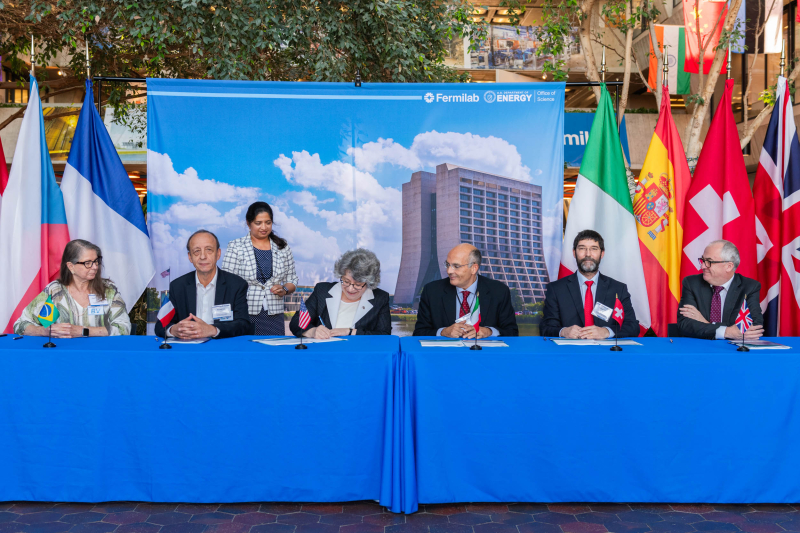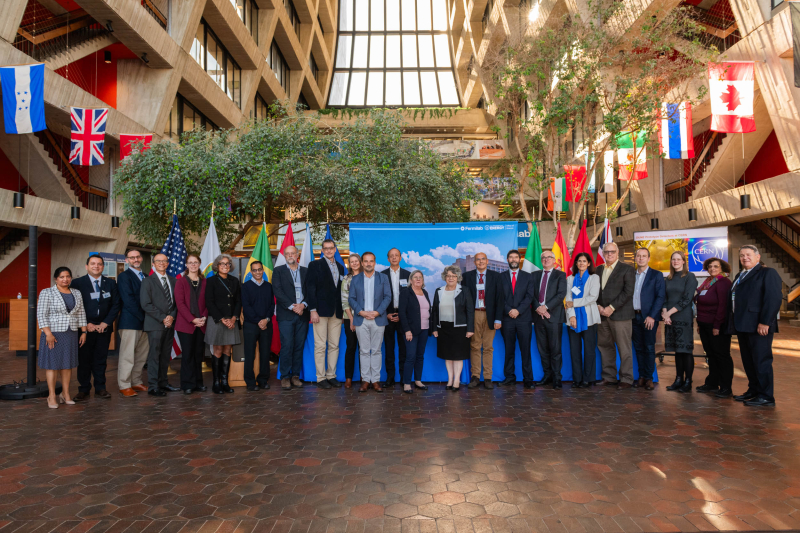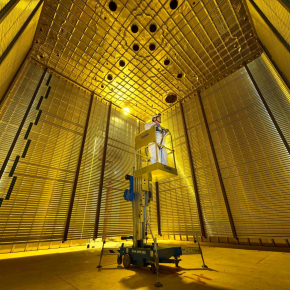France joins the construction of the DUNE international neutrino experiment
On November 17, 2023, IN2P3 signed an agreement with Fermilab for the construction of particle detectors for the DUNE (Deep Underground Neutrino Experiment) neutrino physics experiment, along with the funding bodies and agencies of five other countries and CERN. Scheduled to start up in 2029, the DUNE experiment will take the study of neutrinos to a new level, and could explain why our Universe is dominated by matter rather than antimatter.
The DUNE experiment brings together more than 1,400 scientists from over 200 research institutions. It is based on a 215-meter-long particle accelerator (PIP II), which will be used to produce a beam of neutrinos of unprecedented intensity, directed from the Fermilab complex near Chicago to several detectors. The near-field detector is located at Fermilab, while the gigantic far-field underground detectors are located 1300 kilometers away at the Sanford Underground Research Laboratory (SURF) in South Dakota.
This agreement formalises IN2P3's commitment as the DOE's main partner in the construction of one of the two distant detectors. This detector will be a very large-scale application of "vertical drift" technology in a liquid argon time-projection chamber. This technology was inspired by 15 years of R&D carried out in French laboratories, in particular, and in which the electron trains produced by the interaction of neutrinos with liquid argon migrate vertically under the effect of an intense electric field towards the detection planes. Six of the institute's laboratories (APC, IJCLab, IP2I, LAPP, LPSC, LP2IB) are contributing to the construction of the charge reading planes, the electronics for reading the ionisation signal (and to a lesser extent the light signal) and the high-voltage system. The construction of a final 1/20th scale demonstrator was completed this year on CERN's Neutrino platform, and should be taking data in 2024. In addition, the CC-IN2P3 is already hosting the data taken with the prototypes at CERN, and will contribute to the experiment's overall storage and computing capacity.
France will also be making significant contributions to the construction of the PIP II (Proton Improvement Plan II) particle accelerator.
Infrastructure work is currently well underway both at Fermilab and in South Dakota: excavation of the large caverns for DUNE's remote detectors is over 90% complete.


